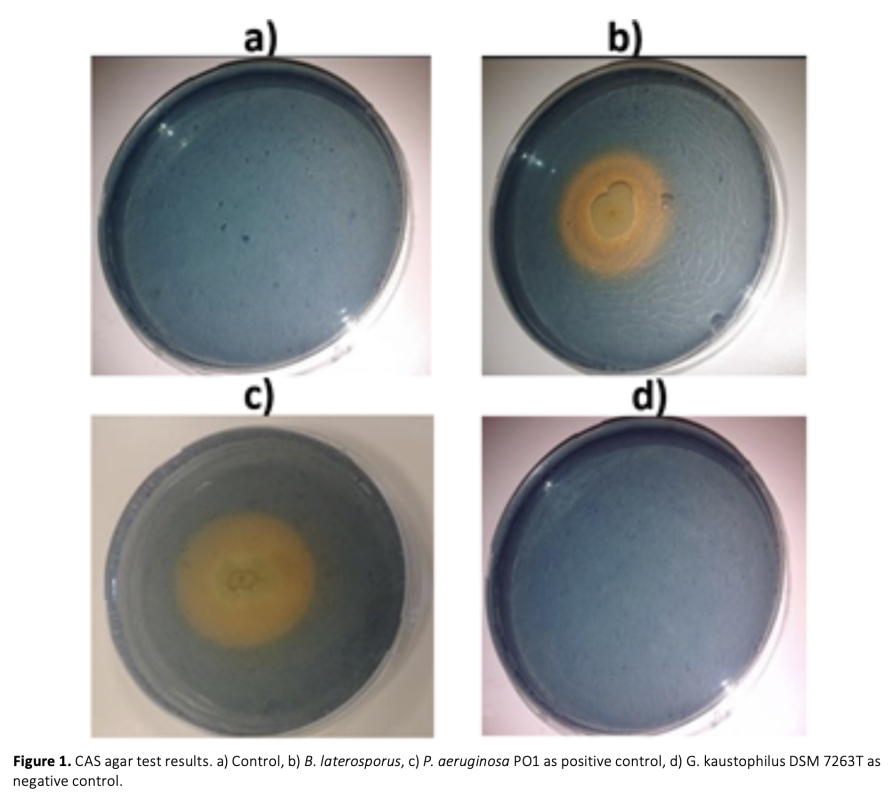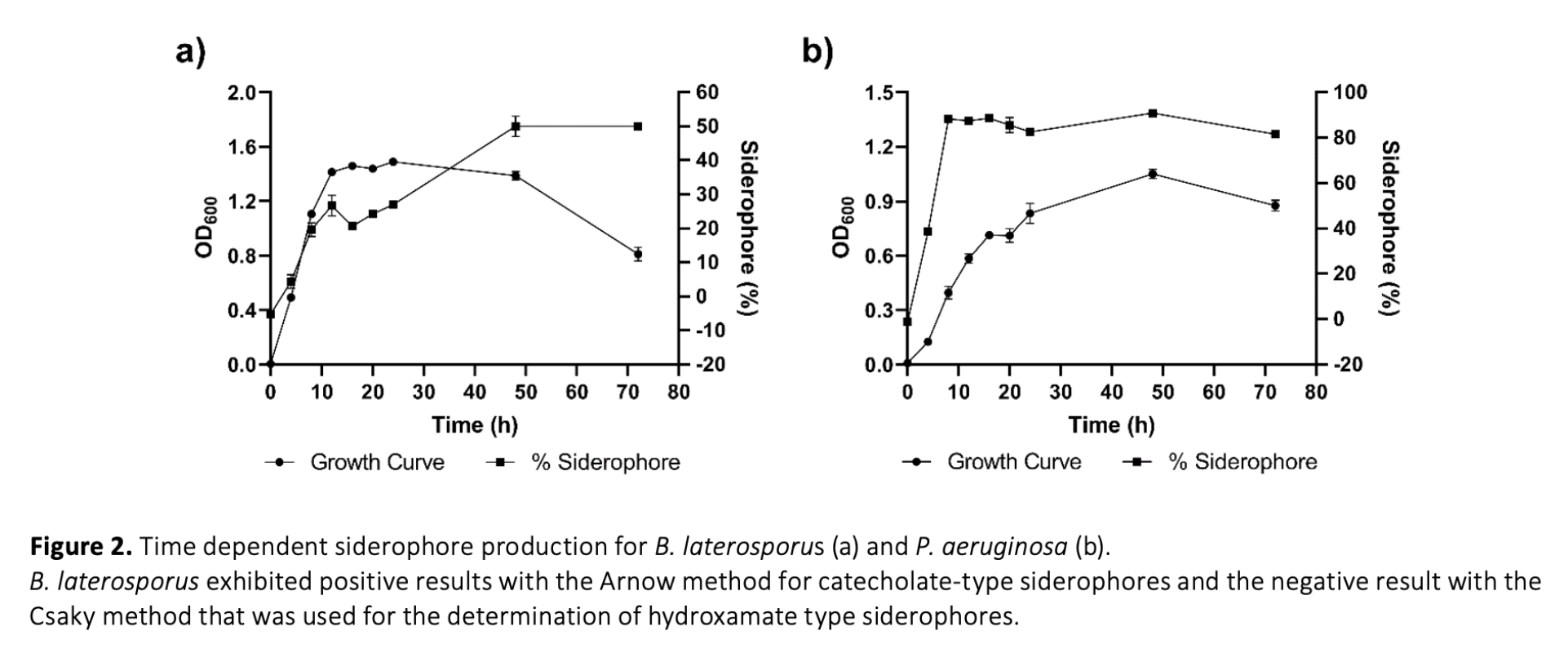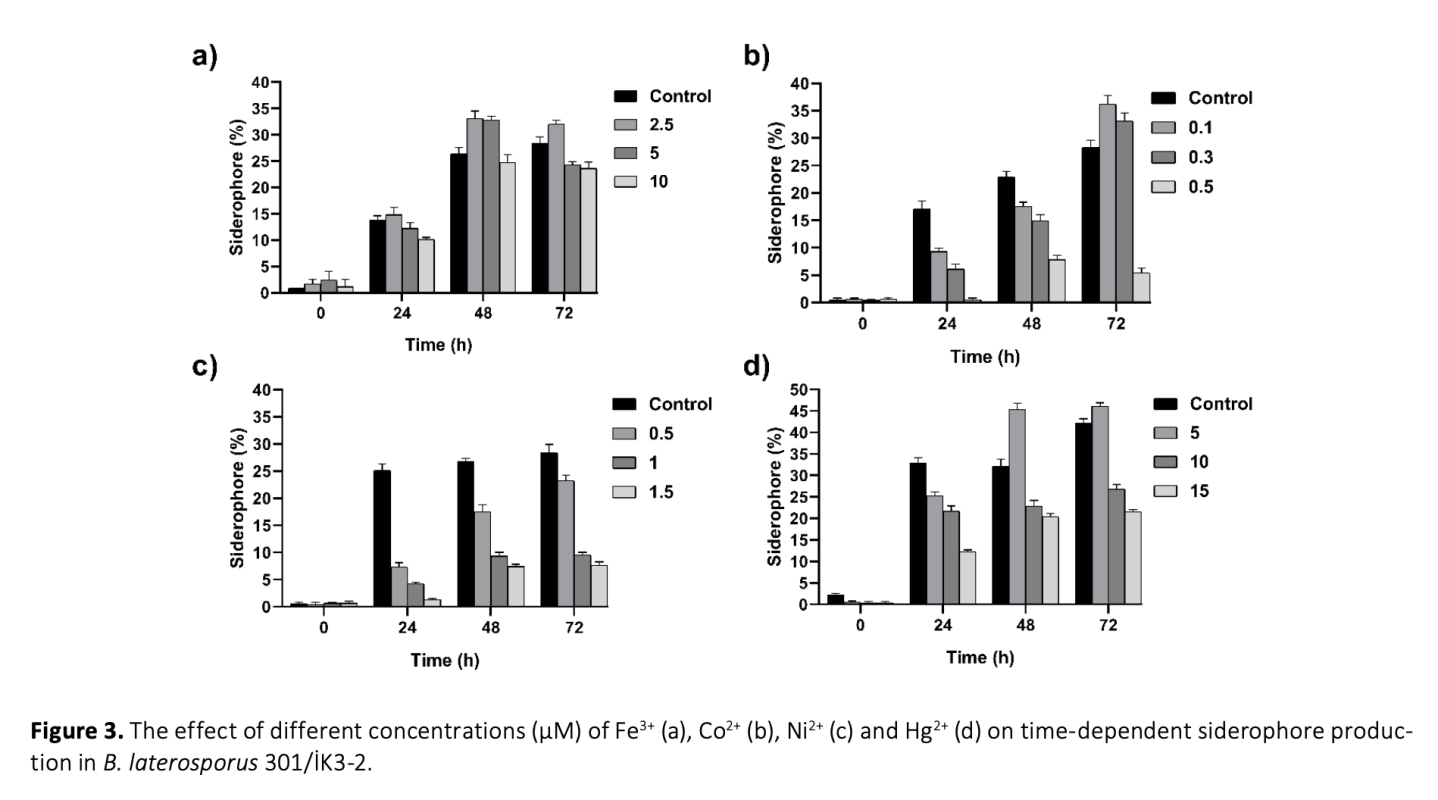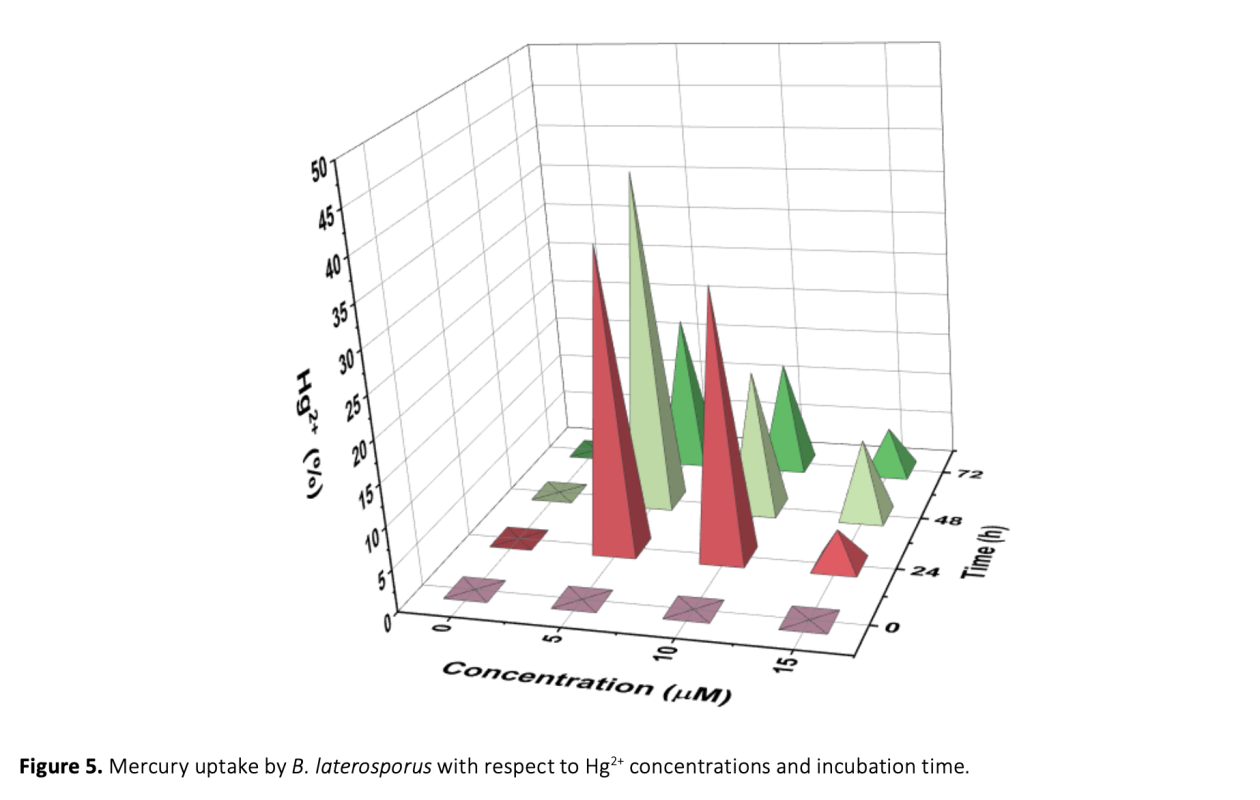Siderophores are secondary metabolites released into the environment by various microorganisms, fungi and plants to chelate iron from the surrounding environment. It is known that siderophores bind to other metals besides iron. Today, heavy metals, which are released as an undesirable result of industrial development, accumulate at high rates and pose a significant threat to biological living things. In this sense, remediation of heavy metal contaminated sites is an urgent requirement. Siderophores are promising agents for the removal of heavy metals from natural habitats with the role of bioremediation. In this study, the effect of heavy metals on the growth and siderophore production of Brevibacillus laterosporus was investigated. Maximum siderophore production was determined as 50 % at 48 h in the metal free growth media. In addition, maximum siderophore production was determined in the presence of various heavy metals including 5 μM Hg2+, 0.5 mM Ni2+, 0.1 mM Co2+ and 2.5 μM Fe2+. Intracellular uptake of the mercury was also measured using optical emission spectroscopy and compared with siderophore production values of the B. laterosporus. The maximum biosorption of mercury was measured to be 40% in 5 μM Hg2+ containing media at 48 h of incubation. The results show that siderophore production is affected by uptake of various metals, and are usable for removing of heavy metals from environmental habitats.
Sideroforlar, çevrelendikleri ortamdan demiri şelatlamak için çeşitli mikroorganizmalar, mantarlar ve bitkiler tarafından çevreye salınan ikincil metabolitlerdir. Sideroforların demir dışında diğer metallere de bağlandığı bilinmektedir. Günümüzde endüstriyel gelişmenin istenmeyen bir sonucu olarak açığa çıkan ağır metaller yüksek oranlarda birikmekte ve biyolojik canlılar için önemli bir tehdit oluşturmaktadır. Bu anlamda, ağır metalle kontamine olan alanların iyileştirilmesi acil bir gerekliliktir. Sideroforlar, biyoremediasyon rolü ile ağır metallerin doğal yaşam alanlarından uzaklaştırılması için umut vaat eden ajanlardır. Bu çalışmada ağır metallerin Brevibacillus laterosporus’un büyümesi ve siderofor üretimi üzerindeki etkisi araştırılmıştır. Maksimum siderofor üretimi metal içermeyen büyüme ortamında 48 saatte %50 olarak belirlendi. Ayrıca, maksimum siderofor üretimi 5 μM Hg2+, 0,5 mM Ni2+, 0,1 mM Co2+ ve 2,5 μM Fe2+ gibi çeşitli ağır metallerin varlığında belirlendi. Civanın hücre içi alımı, optik emisyon spektroskopisi kullanılarak da ölçüldü ve B. laterosporus’un siderofor üretim değerleri ile karşılaştırıldı. Civanın maksimum biyosorpsiyonu, 48 saatlik inkübasyon sonunda 5 μM Hg2+ içeren ortamda %40 olarak ölçüldü. Sonuçlar, siderofor üretiminin çeşitli metallerin alımından etkilendiğini ve ağır metallerin çevresel habitatlardan uzaklaştırılması için kullanılabileceğini göstermektedir.




Download Article in PDF (793.1 kB)